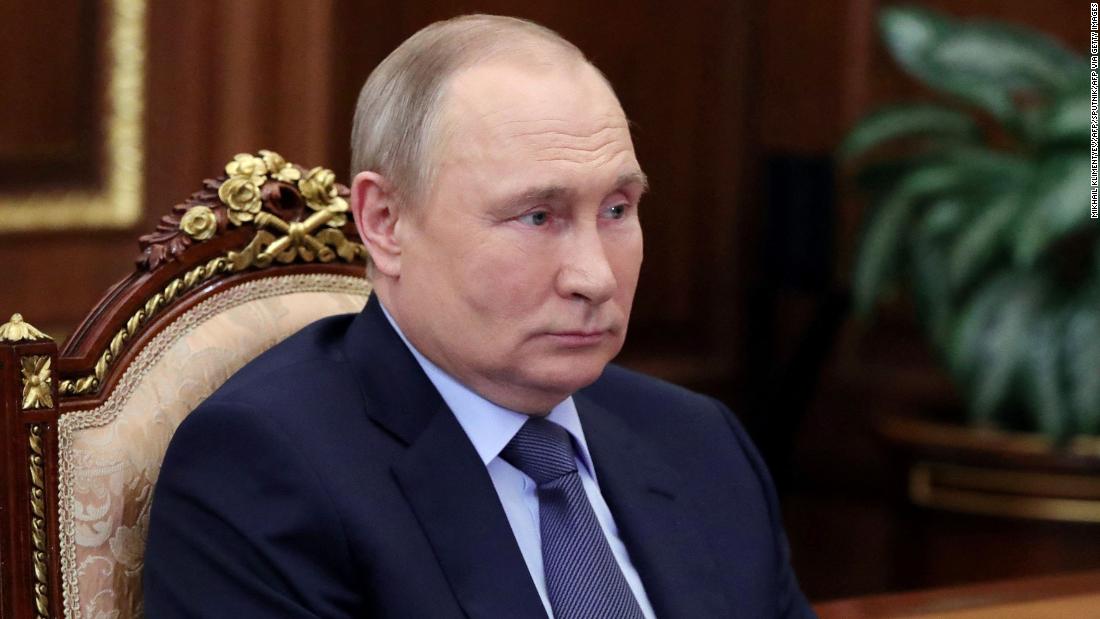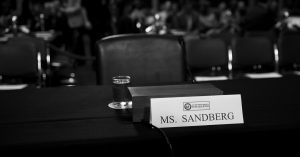
I admit it: During the 22 years I reported on Putin, I didn’t listen to him as closely as I should have. Or, rather, I listened to the parts I wanted to hear, the parts that sounded good to the ear of a Westerner. Like the first time I sat next to the Russian President in the Kremlin Library.
It was June 2000, six months after Boris Yeltsin chose Putin as his political heir, three months after Putin won an all-but-guaranteed presidential election. He invited a small group of Western journalists to the Kremlin. We gathered at a large round table in the library. I was seated at Putin’s right, a good vantage point to observe him close-up, as he dissected a small pastry and sipped tea.
He confidently took questions for three hours; I was impressed. He was cool and in control — that is, until he was challenged with a question about the war in Chechnya. Suddenly, his entire body stiffened, he leaned in toward us, his gestures became jerky and angry as he justified his scorched-earth tactics against the breakaway republic.
So, I gave Putin a break. Yes, there were rumors that the Russian government itself, with Putin as Yeltsin’s newly-chosen prime minister, was behind the attacks, creating a pretext to propel the former KGB officer to the presidency. But to blow up your own citizens seemed too outlandish, too impossible, too horrible to even contemplate.
Nearly 22 years later I see the same scorched-earth tactics being used against Ukrainian cities like Mariupol.
On Feb. 24, in Moscow, watching Russian state television as Putin announced his “special military operation” against Ukraine, I was reminded of Putin’s Jekyll-and-Hyde performance in the Kremlin Library. In a snarling speech he began not with Ukraine, but with his old obsession, Chechnya, accusing the US of trying to destroy Russia in the early years of his rule.
Over the years that I reported on Putin I observed his KGB agent role-playing, the way he reflects back to the person with whom he is interacting whatever that person wants to see or hear. If it’s someone polite, Putin can be polite. If it’s someone rough or crude, Putin can use profanity and off-color language better than any politician I’ve seen.
Yet, within a year of being elected President, he had begun his crackdown on the media. Now, there are virtually no independent media left in Russia.
I vividly remember a conversation I had in those days with a senior aide to Putin, whom I knew quite well. “Do you actually believe in democracy for Russia?” I asked him. “Of course!” he answered. “Just not quite now. If people are left to their own devices, they will elect the wrong people.”
There was former President Barack Obama’s “reset,” an attempt to establish a cooperative, not adversarial relationship with Russia.
Then, he upped the ante: “One state and, of course, first and foremost the United States, has overstepped its national borders in every way. This is visible in the economic, political, cultural and educational policies it imposes on other nations. Well, who likes this? Who is happy about this?”
I chose, instead, to concentrate on what sounded like his promising pledge to develop new, stricter non-proliferation measures: “Russia is ready for such work. We are engaged in consultations with our American friends.”
As I look back at that speech now, more than three months into the grinding obliteration of cities and human beings unleashed by Putin’s army in Ukraine, I realize I should have listened, really listened, to Putin. Listened to his obsession with Chechnya, yes, and to his obsession with Ukraine. But really paid attention to his deep and abiding resentment of the US. Understood it the day he declared war on Ukraine but spent most of his speech calling the US an “empire of lies” and accusing it of “con artist behavior.”
A Russian friend once told me that, in Putin’s world view, he draws a line between an enemy and a traitor. An enemy he respects; a traitor he despises. For Putin, the US is both enemy and traitor: a powerful nation that, on one level, he respects yet deeply resents, a country that must be confronted, that, as he sees it, stabbed Russia in the back.
It’s the same Putin I saw in the Kremlin Library nearly 22 years ago. A man erupting in fury, bent on retribution. He had launched the Second Chechen War that decimated the republic and its people. Now, he has unleashed a war that will have devastating consequences both for Ukraine and for Russia.
He reserves a boiling yet impotent fury for the US. “Where did this insolent manner of talking down from the height of their exceptionalism, infallibility and all-permissiveness come from? What is the explanation for this contemptuous and disdainful attitude to our interests and absolutely legitimate demands?” he said in his February 24 address.
This time, I’m paying attention to Putin’s every word. And I finally understand.

